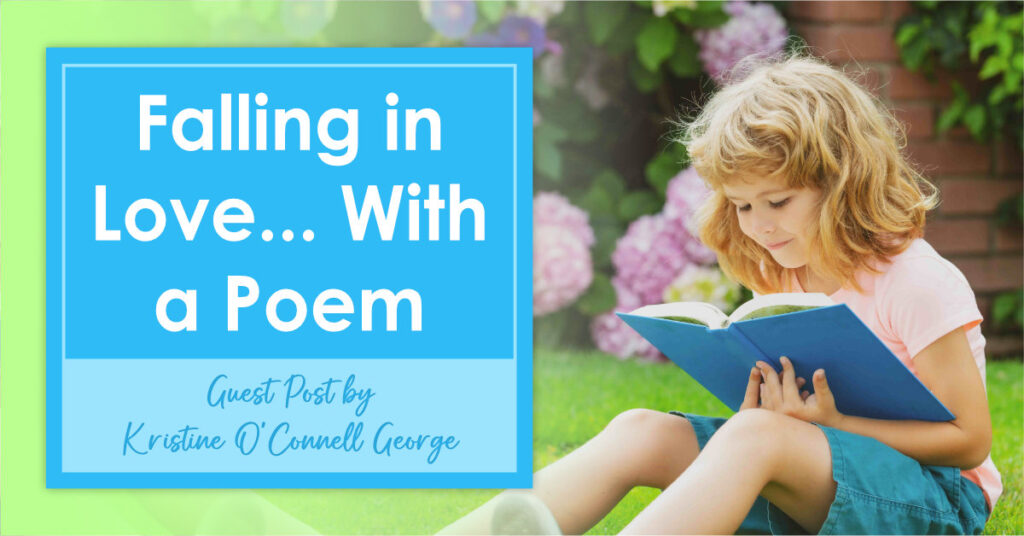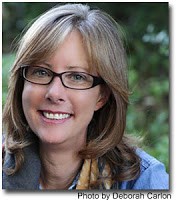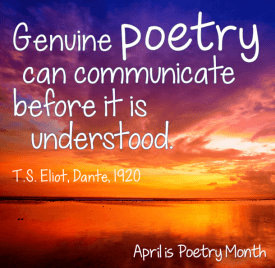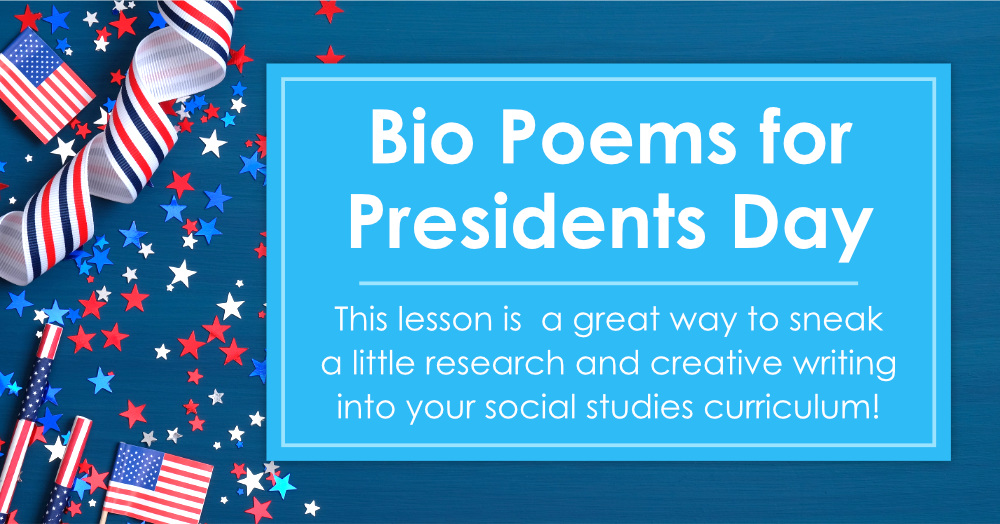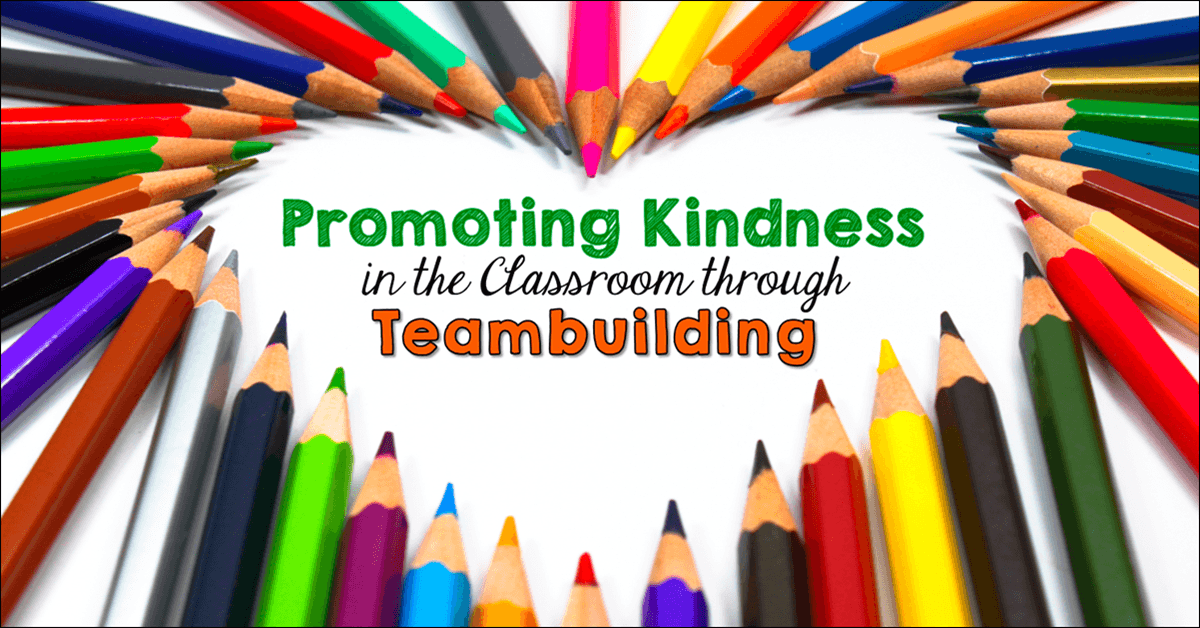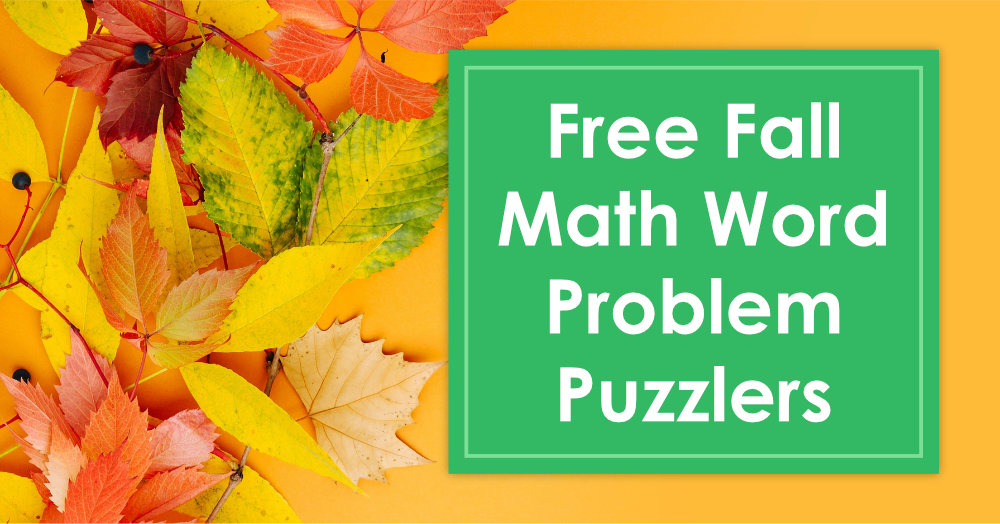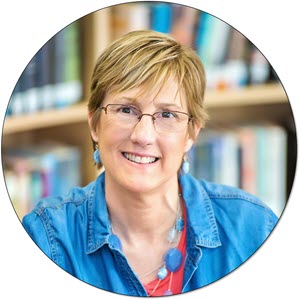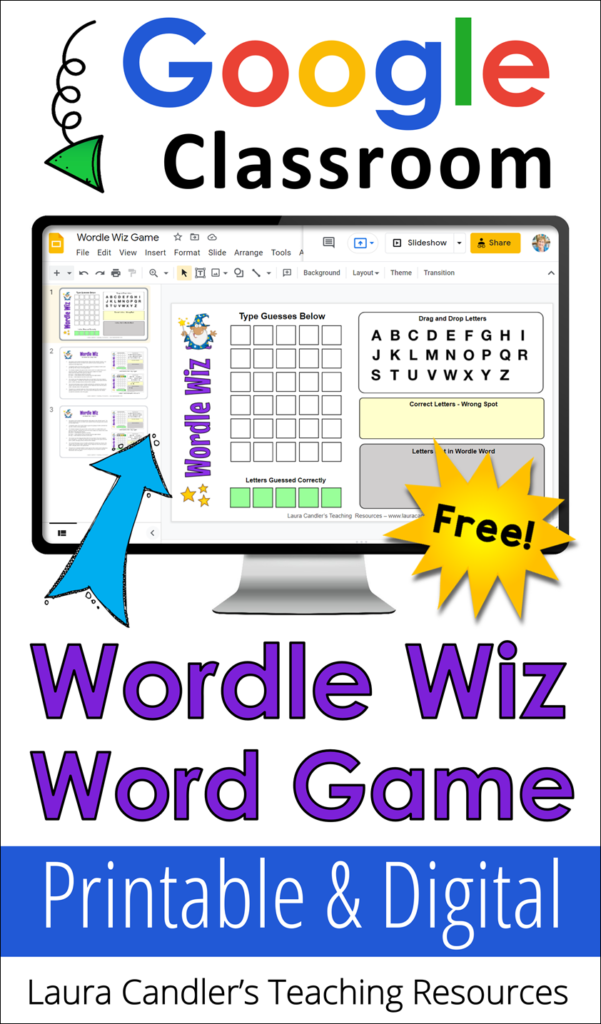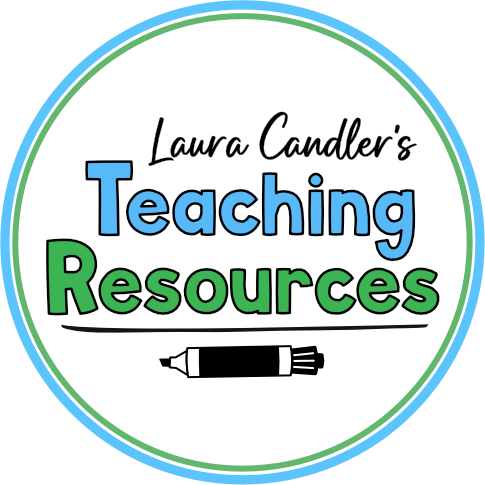April is National Poetry Month, and I’m honored to welcome nationally-acclaimed children’s poet Kristine O’Connell George as a guest blogger. Kristine is one of my favorite children’s poets, and I know you’ll love her work, too! Kristine shares her love of poetry with us and offers tips for teachers who want to foster a love of poetry in their students.
Falling in Love … With a Poem
by Kristine O’Connell George
Have you ever fallen in love with . . . a poem? One of my first loves was tall and thin with a rhythmic, thoughtful voice. There was a touch of mystery.
The poem begins:
This is my rock,
And here I run
To steal the secret of the sun;
I first heard David McCord’s poem in the first of what would be many, many classes with noted poet and anthologist, Myra Cohn Livingston. Suddenly, I was no longer in a classroom with adults; I was nine years old again, running down the street to my special rock. (Read the rest of the poem and learn more about McCord here.)
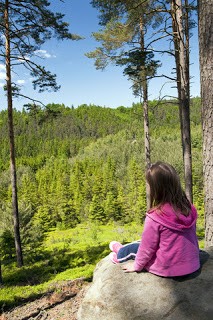
I fell head over heels for this poem—not at first sight, but at first hearing—because it kindled a personal connection. Did I know or care that the stanzas were tercets? That repetition of the first line provided structure? No. Had Myra launched into an analysis after reading the poem to my class, she would have broken my connection with the poem and squashed the magic that McCord’s words had woven for me.
Sometimes, I worry that we have turned poetry into the literary equivalent of broccoli. Or Brussels sprouts. Something you should eat because it’s good for you. Yuck! Too many see poetry as difficult and feel inadequate—uncertain and uneasy. Sometimes, even unsure as to how a poem is supposed to be read aloud.
The poets I know do not write poems as showcases for literary devices. They do not slip in a simile, add a touch of assonance or off-rhyme, and wrap it up in an anapestic rhythm to bedevil and torment teachers and small children.
The poets I know write, revise, and struggle with words to create their poems because something touched them deeply. Amazed them. Tickled them. They write because they want to share these feelings with others. They write—as I do—because we hope our poems will be read aloud and perhaps an unseen reader will share our delight. I like to think that David McCord had his own special rock where he “met the evening face to face.”
The late Charlotte S. Huck, Professor Emeritus of Ohio State, told me that she always read poems twice to her students. (She felt that since so much meaning is packed into a poem, kids needed to hear a poem at least twice.) She read poems aloud. No discussion. No analysis. Charlotte felt that—over the course of a school year—students would absorb, internalize, and begin to truly appreciate poetry. That they would hear and begin to understand the amazing things language can do and begin to use some of these tools in their own writing.
Charlotte also noticed the same thing that I have observed: It’s easy to read a funny poem aloud. The kids laugh! However, students often give us blank stares when it’s a thoughtful poem. They twiddle their shoelaces; we assume they did not understand the poem and we stop to explain it. However, Charlotte noted that it was often the thoughtful poems with surprising images that students would remember months later. While it might seem as if students are not paying attention, they’re listening and if they make a personal connection with a particular poem, they will take it into their hearts. I believe we need to trust that this process works, and get out of the way of a poem. Allow a poem to live and breathe before we analyze, dissect, and label its parts.
Celebrate Poem in Your Pocket Day
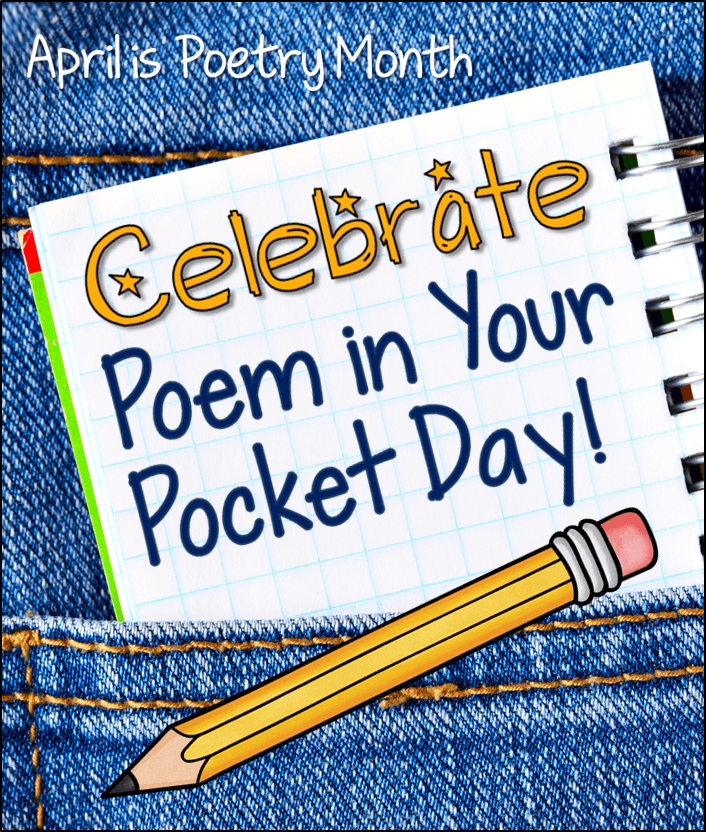
So, how to find those poems you love? While there are reams of poetry on the Internet, I often find myself whizzing and clicking—never giving the poems I find the time and attention they deserve. Instead, I prefer to discover the poems I’ll share with children the old-fashioned way—in books.
Anthologies are a good place to start. Read some of the poems aloud. You might find the perfect poem for your pocket or discover a poet whose work you want to explore further. Or, listen to poetry readings on the Internet. What poems will you share this year? I’d love to hear what you have planned!
Kristine O’Connell George is one of the principal voices in contemporary children’s poetry. Since her first highly-acclaimed book, The Great Frog Race, was published in 1997, Kristine O’Connell George’s poetry has generated excitement and earned honors and praise. Awards for her books include the Lee Bennett Hopkins Poetry Award, the Golden Kite, Claudia Lewis Poetry Awards, and many, many more. Visit her Amazon author page to find more of her poetry books.

